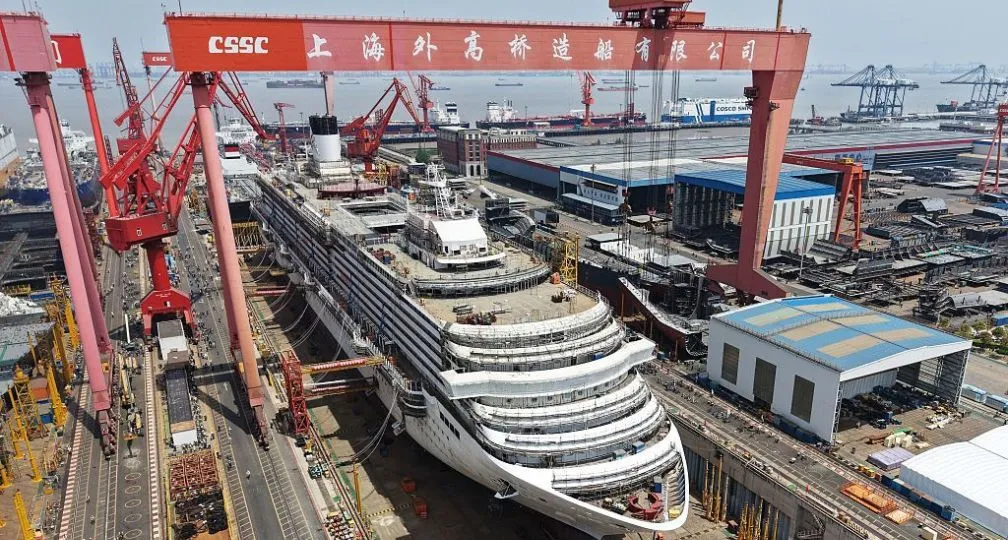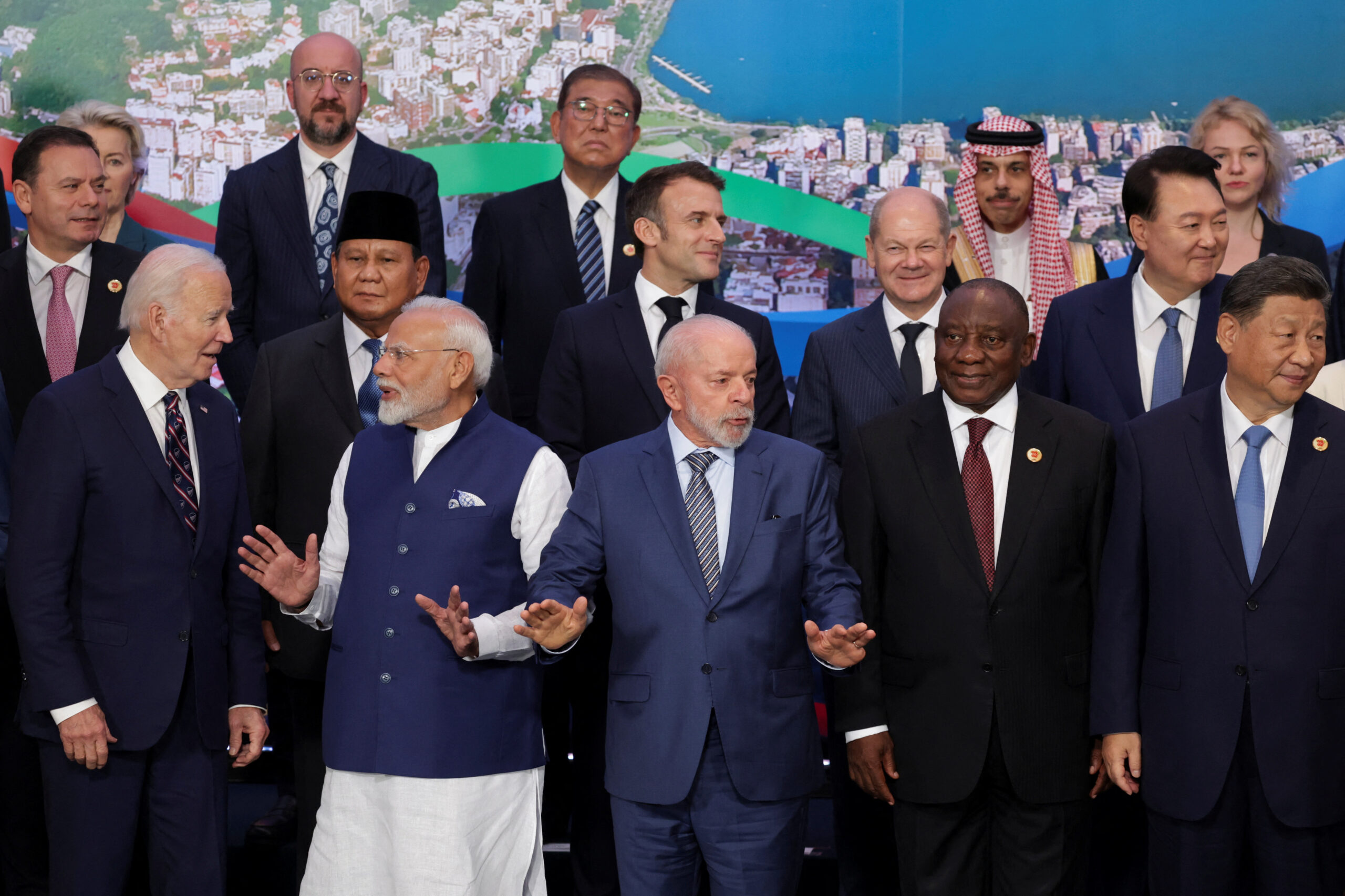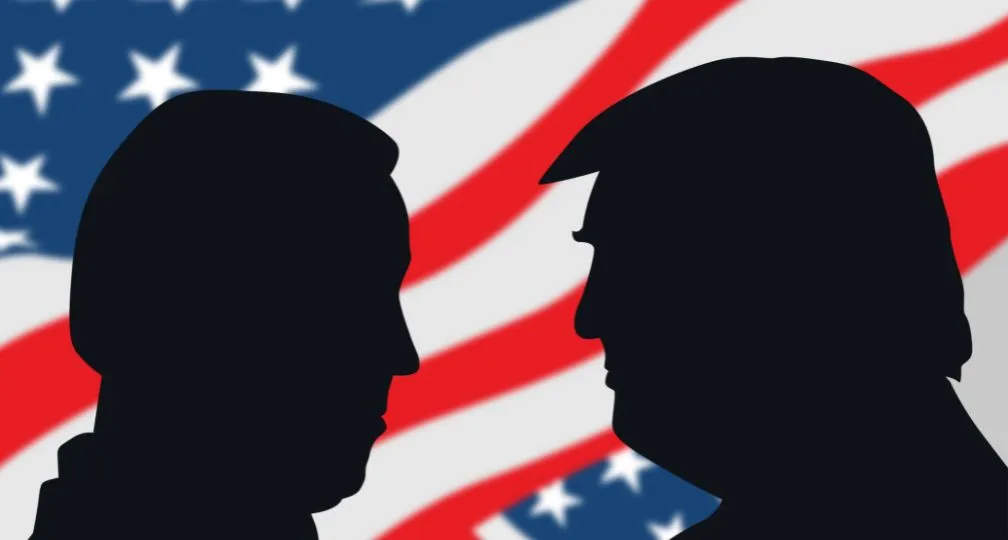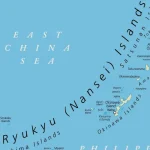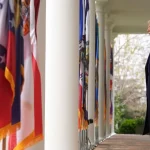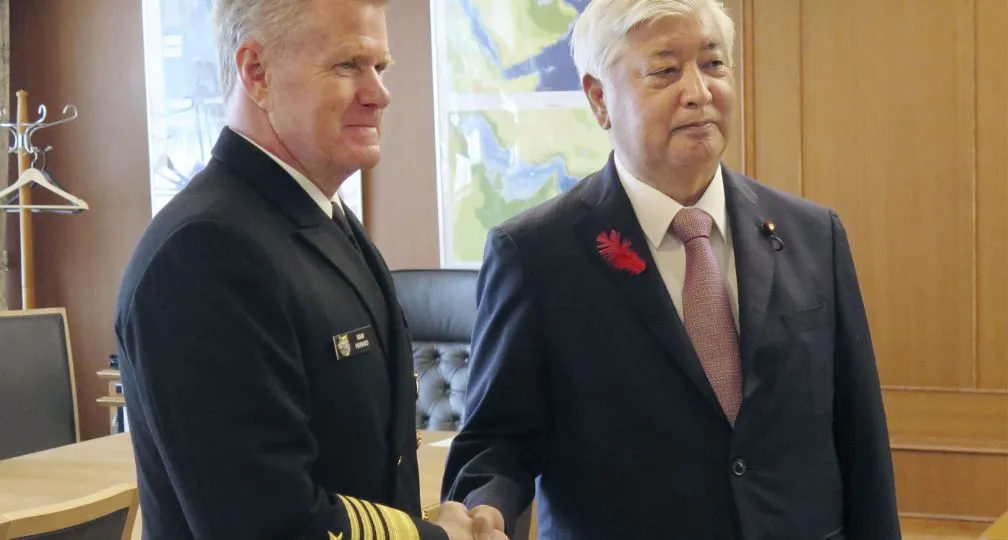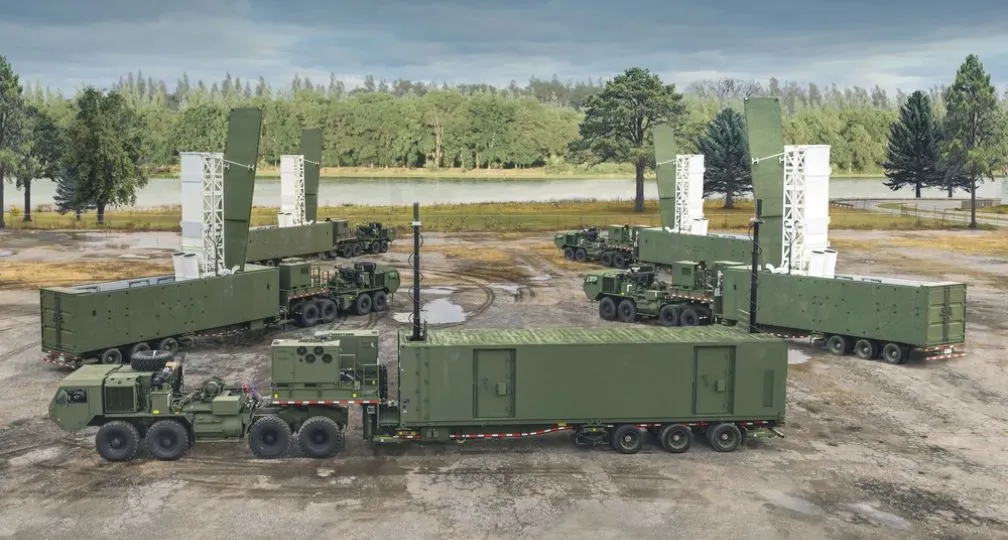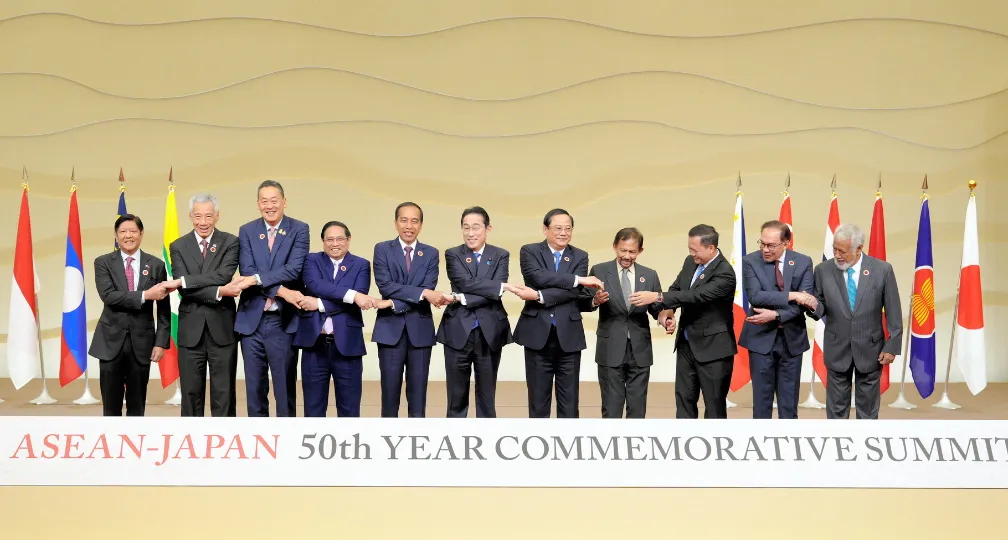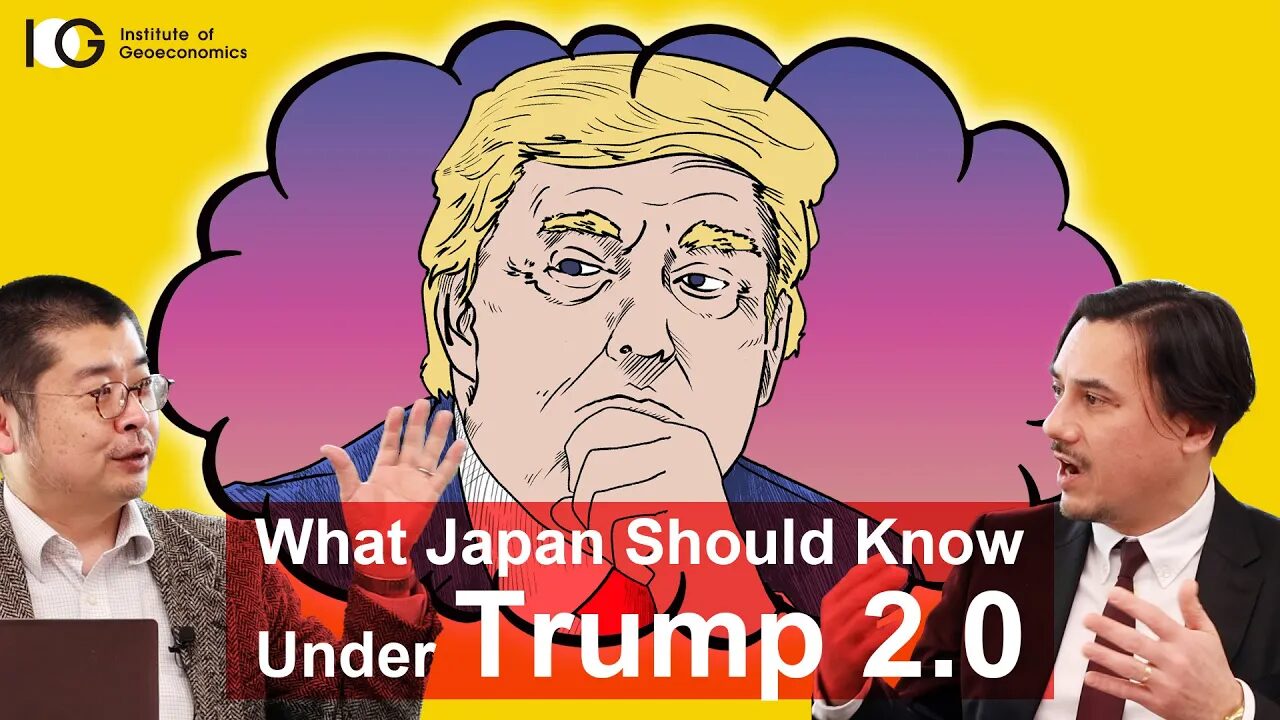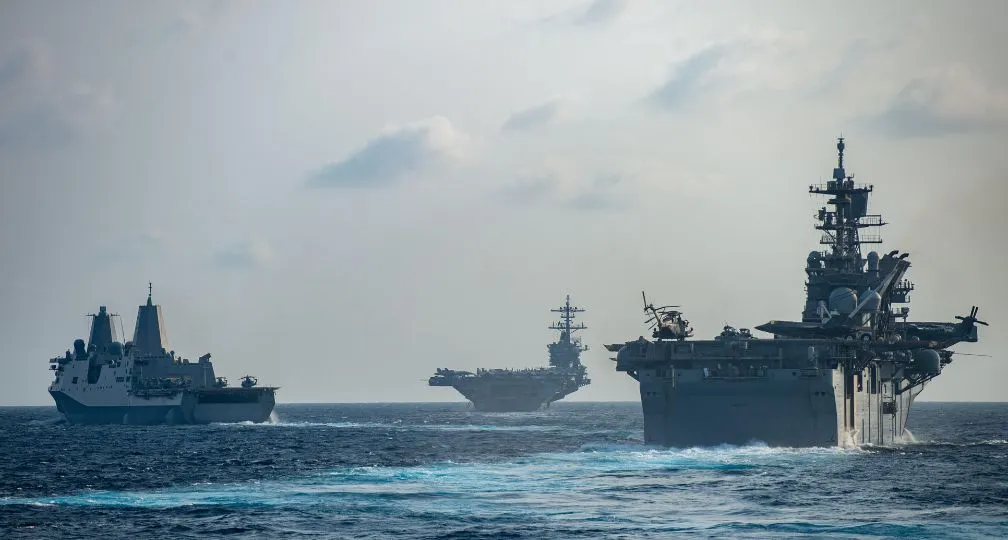How should Japan deal with Ukraine, Gaza and the Indo-Pacific region?
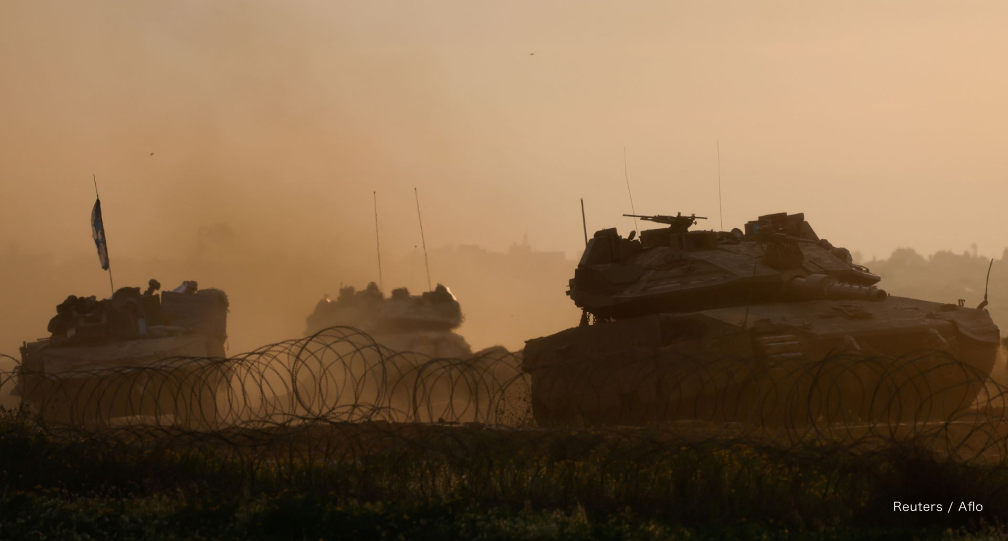
Now, however, these premises have been mainly lost. The power, institutions and values that underpin the international security order are being compromised worldwide. Emerging powers have not only raised objections to the West-centered worldview but have even begun to seek alternative orders among themselves. As a result, the status quo has been lost in many parts of the world, leading to ruthless conflicts and violence. In the meantime, the world has been unable to restore the balance that has been lost.
What symbolizes them are three theaters of war: the Russian invasion of Ukraine in February 2022, the Israel-Hamas war that started in October, and the Indo-Pacific region centered on China-Taiwan relations and North Korea. The status quo has already collapsed in Ukraine and Gaza — and is barely being maintained in the Indo-Pacific, with the magnitude of collapse systematically increasing. It is indisputable that the world’s primary goal is to deal with the three theaters — to end the wars in Ukraine and Gaza and restore the status quo, as well as to deter conflicts in the Indo-Pacific region.
However, we must note that the three theaters are not separate and localized but are complexly interrelated. On the one hand, there are the interrelations of actors with an orientation toward changing the existing order, such as Russia, China, Iran and North Korea; on the other hand, there is the interlocking of values such as territorial integrity, sovereignty and identity; and there is the connectivity of the efficacy of deterrence and institutions. We need to pay more attention to the correlations of the nature of the three theaters, where compromise, victory or defeat in one battlefield affects the other.
When looking at the world in 2024, it is essential to analyze the interconnection among the three theaters and find Tokyo’s priorities — particularly considering the United States’ limited capabilities. Necessary resources cannot be distributed to all three theaters; solutions must be found for each theater and for all three simultaneously. However, that means coping with problems structured in ways that could work contradictory to one another.
The Ukraine war in a stalemate
The outcome of the war in Ukraine could have the most significant impact among the three interrelated war theaters. As I wrote in a previous article in this series, how this war ends will become a crucial factor in determining the future international security order in the medium to long term. Nevertheless, the current situation offers few elements that favor Ukraine. The problem provides little cause for optimism for Ukraine: its military’s counteroffensive, which began in June 2023, has produced no notable results and has been stymied by the strong defenses of the Russian forces. In addition, the Russian military, which has the superior ability to mobilize its soldiers, has turned to a renewed offensive in some provinces, and the situation continues to move back and forth.
This has resulted in Ukraine aid fatigue as well as pessimistic views emerging on the war. In February, the European Union agreed to a new €50 billion aid package for Ukraine, narrowly avoiding a breakup despite Hungary’s veto threat. However, in the U.S., Congress has failed to pass an additional budget bill that includes fresh military aid for Ukraine due to differences between the Democrats and Republicans. If Donald Trump returns to the White House, it is almost certain that U.S. support for Ukraine will broadly decline. Even if that is not the case, arguments are growing in the West that countries can’t continue to support Ukraine if the Ukrainian government maintains its current strategy, as can be seen in a Foreign Affairs article by Richard Haass and Charles Kupchan of the Council on Foreign Relations published in November calling for a pause and a need to shift to a defensive stance.
On the other hand, Russian President Vladimir Putin has no reason to choose a compromising approach in 2024. The West’s aid fatigue, the Western countries’ unity in disarray, and internal splits between Ukraine’s political and military leadership are all working in Russia’s favor, and there is no reason for Moscow not to wait to see the result of the November U.S. presidential election. Momentum is also growing for Russia to increase its presence as a spoiler — a party that undermines conflict settlement — in the remaining two war theaters, sending out disinformation on conflict areas in the Middle East and strengthening military technology cooperation with North Korea.
2024 will be a year in which the Ukraine war transitions into a static stalemate, and attention will be paid to how the pendulum swings regarding the degree of U.S. engagement with the war. A prolonged stalemate indicates that Western countries’ ability to restore security order is malfunctioning, and the uncertainty over U.S. policy will prompt Russia to put every compromising action on hold this year. It is easy to imagine that such a situation will affect the strategic calculations of leaders of authoritarian regimes in a way favorable to the international security order.
Accelerating multipolarization
Since Palestinian militant group Hamas attacked Israel on Oct. 7, killing civilians and taking around 250 captives, the Israeli military has been relentlessly attacking Gaza. Aerial attacks and bombardment by Israeli forces have destroyed Gaza’s infrastructure, and the United Nations Satellite Center said in February that approximately 30% of all structures in the territory have been destroyed. More than 30,000 residents of Gaza have died as a result of the Israeli attacks, and attacks in the southernmost city of Rafah will further deepen the humanitarian crisis. The international community has been casting a harsh eye over Israel’s military attacks and criticism is rising over the U.S. stance of putting up with Israel’s actions.
In December, when the U.N. General Assembly adopted a resolution demanding an immediate humanitarian cease-fire in Gaza, the U.S. voted against the resolution, along with Israel, while a vast majority, including countries like Japan and France, backed it, highlighting a growing divide among member states on the stance regarding the Israel-Hamas war. Values are being greatly shaken even within the U.S. between the protection of Gaza residents and support for Israel. The longer this war continues, the deeper the confrontations within the international community and the divide within the U.S. will become, chipping away at the smallest chance of Israel and Palestine restoring balance.
Another issue of concern is that Iran is stepping up its attacks on U.S. military bases through Iran-backed militant groups. Washington had maintained a restrained response until last year, fearing that the conflict could expand to the entire Middle East. But it suddenly intensified its offensive against Iran, with the militaries of the U.S. and the United Kingdom attacking the anti-government Houthi rebels’ missiles sites in Yemen in January and U.S. troops carrying out strikes on pro-Iranian militias in Iraq and Syria in February.
If Iran and pro-Iranian forces conduct more large-scale attacks against the U.S. military, that could affect debates within the U.S. over attacks on Iran. And if the U.S. government and Congress are driven further into the conflicts in Gaza and confrontations with Iran, the U.S. could be forced to expand its military deployment in the Middle East to strengthen its posture in the region again.
In addition to increasing the presence of U.S. forces in Europe, if Washington is pressured to reengage in the Middle East region where it withdrew most of its troops, such a situation could have a zero-sum bias effect on U.S. engagement in the Indo-Pacific region, an area that has essentially been regarded as the biggest challenge.
Tactical pose
From China’s perspective, the situation in which the U.S., which has called the Indo-Pacific region the “priority theater,” is directing political resources to Ukraine and Gaza has many advantages. This is because it could prompt Washington to halt the expansion of its military posture in the Indo-Pacific region, and the U.S. government and Congress would be less interested in Taiwan. In fact, senior U.S. military officials appear to be toning down their comments on China’s capabilities to invade Taiwan, saying recently that China’s military power is still insufficient to successfully invade Taiwan. Restraints on the U.S. Indo-Pacific strategy that take on a political character will somewhat calm down U.S.-China confrontations. Still, they also mean a period of tactical pose for Beijing.
U.S. President Joe Biden and Chinese leader Xi Jinping met in November on the sidelines of the Asia-Pacific Economic Cooperation meeting in California and secured agreements to resume military communications to avoid the type of miscommunication or miscalculation U.S. officials fear could lead to open conflict. Washington sent a bipartisan delegation of former government officials to Taiwan following Democratic Progressive Party candidate Lai Ching-te’s victory in the January presidential election. This highlights a cautious stance toward the unintentional rise of military tensions in China. It is difficult even for the U.S. to respond to the three war theaters, and Washington’s latest action can be interpreted as prioritizing political stability in U.S.-China relations.
North Korea is also strengthening its position in the three war theaters, making maximum use of every opportunity to take advantage of the situation. If, in particular, Pyongyang pushes forward an unprecedented level of military cooperation with Russia and boosts its nuclear and missile capabilities, it could affect the framework of extended deterrence against North Korea. Moreover, we should take seriously the fact that a U.N. Security Council resolution aimed at imposing stricter sanctions on North Korea was vetoed by Russia.
How Japan should act
The Japanese government faces a tough challenge in dealing with the three interlocking war theaters: Ukraine, Gaza and the Indo-Pacific region. Recovering today’s international security order requires a high cost, and if Washington fully intervenes in Europe and the Middle East, the military posture in the Indo-Pacific region will become thin. On the contrary, if the U.S. withdraws from Europe and the Middle East in fear of bearing such costs, trust in Washington’s ability to intervene in conflicts will decline greatly, causing a dilemma.
As stated in Japan’s National Security Strategy released in December 2022, the war theater created a severe security environment for the country, sitting as it does in the Indo-Pacific region, centered in China, North Korea and Russia. The government’s strategy should bring back the strategic focus on the three regional war theaters surrounding Japan — China, North Korea and Russia — while recovering balance among the three global war theaters — Ukraine, Gaza and the Indo-Pacific region.
To do so, firstly, Japan must strengthen aid to Ukraine to maintain its ability to keep fighting and turn the war situation in favor of the country. It is essential to rebuild Ukraine’s counterforce with Europe-led assistance even if U.S. aid shrinks. Japan should take the recovery of security order in Europe as its own problem — just as Prime Minister Fumio Kishida said, “Ukraine today may be East Asia tomorrow” — and take consistent measures to help end the Ukraine war in a way that leads the country to restore its status quo.
Secondly, Japan should work with the international community to realize an early cease-fire in the Israel-Hamas war. While Israel’s right to self-defense should be fully respected, it is difficult to expect that the current attacks on Gaza would lead to the extermination of Hamas, and the situation is instead causing an even more severe humanitarian crisis, resulting in Israel and the U.S. losing their values in the international society. This will adversely affect Japan’s national interests, and Japan should not hesitate to take a different stance from the U.S. on this issue.
Thirdly, Japan, together with the U.S., should strengthen deterrence against a Chinese invasion of Taiwan. Tokyo and Washington must maintain the situation in which the invasion of Taiwan will not become a strategic gain for China, no matter what lessons Beijing might learn from the other two war theaters, and continue denying China’s ability to conduct military operations. Furthermore, it is necessary to deny North Korea’s unilateral recognition that it gained deterrence against the U.S. and South Korea and build a military posture that does not provide Pyongyang with strategic sufficiency — having forces adequate to prevent it from being coerced.
To realize this, the essential goal is to boost the U.S. Indo-Pacific strategy as an anchor of deterrence. It is significant that Japan takes these actions to gradually unlink the three global war theaters, separate them into regional theaters, and return to the ]c
ompetitive strategy of focusing mostly on the Indo-Pacific region. 2024 should be the year to lay a path to achieve this strategic goal.
[Note] This article was posted to the Japan Times on March 31, 2024:
https://www.japantimes.co.jp/commentary/2024/03/31/japan/economic-security-three-fronts/

Geoeconomic Briefing
Geoeconomic Briefing is a series featuring researchers at the IOG focused on Japan’s challenges in that field. It also provides analyses of the state of the world and trade risks, as well as technological and industrial structures (Editor-in-chief: Dr. Kazuto Suzuki, Director, Institute of Geoeconomics (IOG); Professor, The University of Tokyo).
Disclaimer: The opinions expressed in Geoeconomic Briefing do not necessarily reflect those of the International House of Japan, Asia Pacific Initiative (API), the Institute of Geoeconomics (IOG) or any other organizations to which the author belongs.


Managing Director (Representative Director), International House of Japan,
President, Asia Pacific Initiative
JIMBO Ken is Professor at the Faculty of Policy Management, Keio University. He served as a Special Advisor to the Minister of Defense, Japan Ministry of Defense (2020) and a Senior Advisor, The National Security Secretariat (2018-20). His main research fields are in International Security, Japan-US Security Relations, Japanese Foreign and Defense Policy, Multilateral Security in Asia-Pacific, and Regionalism in East Asia. He has been a policy advisor for various Japanese governmental commissions and research groups including for the National Security Secretariat, the Ministry of Defense and the Ministry of Foreign Affairs. His policy writings have appeared in NBR, The RAND Corporation, Stimson Center, Pacific Forum CSIS, Japan Times, Nikkei, Yomiuri, Asahi and Sankei Shimbun. [Concurrent Position] Professor, Faculty of Policy Management, Keio University
View Profile-
 A ‘Sputnik’ moment in the global AI race2025.07.03
A ‘Sputnik’ moment in the global AI race2025.07.03 -
 China’s shipyard dominance leads to geoeconomic risks2025.07.02
China’s shipyard dominance leads to geoeconomic risks2025.07.02 -
 Democracy shouldn’t be used as an ideological weapon2025.06.26
Democracy shouldn’t be used as an ideological weapon2025.06.26 -
 From dollar hegemony to currency multipolarity?2025.06.25
From dollar hegemony to currency multipolarity?2025.06.25 -
 The Big Continuity in Trump’s International Economic Policy2025.06.11
The Big Continuity in Trump’s International Economic Policy2025.06.11
 The Big Continuity in Trump’s International Economic Policy2025.06.11
The Big Continuity in Trump’s International Economic Policy2025.06.11 The Tyranny of Geography: Okinawa in the era of great power competition2024.02.09
The Tyranny of Geography: Okinawa in the era of great power competition2024.02.09 From dollar hegemony to currency multipolarity?2025.06.25
From dollar hegemony to currency multipolarity?2025.06.25 Trade, capital flows, and the new focus on “global imbalances”2025.05.27
Trade, capital flows, and the new focus on “global imbalances”2025.05.27 After tariffs: Is there a plan to restructure the global economic system?2025.04.03
After tariffs: Is there a plan to restructure the global economic system?2025.04.03



